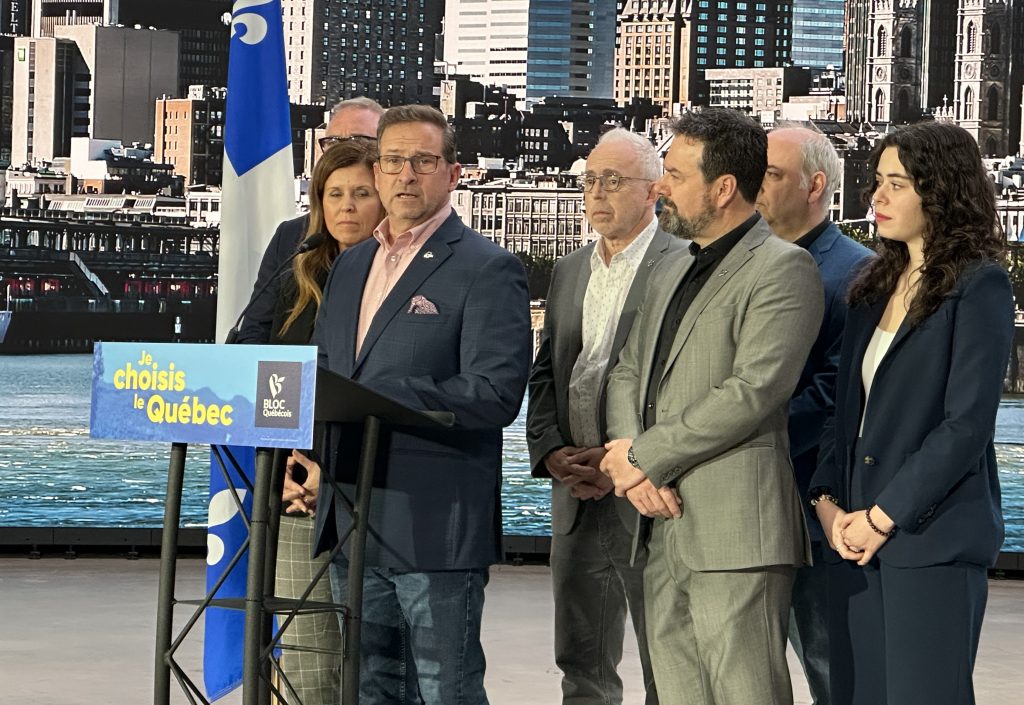Remembering the Quebec mosque shooting, two years later
Posted January 29, 2019 3:30 am.
Last Updated January 29, 2019 9:52 am.
This article is more than 5 years old.
QUEBEC CITY (CityNews) – It has been two years since a deadly shooting at Quebec City’s biggest mosque.
The mosque shooting claimed the lives of six men: Mamadou Tanou Barry, 42, Abdelkrim Hassane, 41, Khaled Belkacemi, 60, Aboubaker Thabti, 44, Azzeddine Soufiane, 57, and Ibrahima Barry, 39.
WATCH: Reaction from Quebec community after deadly mosque attack
Alexandre Bissonnette pleaded guilty to six counts of first-degree murder and six counts of attempted murder last March.
For Said Akjour, who was shot in the shoulder, recovery has been a slow process.
He remembers everything: crouching in an alcove with his “brothers,” watching Derbali get shot, the bullet that pierced his own left shoulder “like an arrow,” and the fear in the eyes of the responding police officers.
“There were many bullets, and time was like an eternity, even if it’s only two minutes,” he said.
Akjour had to undergo a year of physiotherapy, and his arm still bothers him sometimes as he carries out physical tasks at the seniors’ care facility where he has returned to work part-time.
He has also struggled with feelings of shame, helplessness, and guilt.
“Why didn’t I do more?” he said. “It was a feeling that was present. It was changing between gratitude at being alive, but at the same time, brothers were dead.”
Akjour, 46, said his recovery was made easier by writing Arabic poetry and by the solidarity he felt from colleagues, family, and the public.
He briefly considered moving to Ontario, but decided to stay, in part because he feels it’s his responsibility to talk about what happened. “In 10 years, will there be (the victims’ children) coming to ask me about how their father died?” he said. “I will be here to pass on memories.”
Mohamed Yangui, a former president of the mosque, is worried about the message broader society is sending to Muslims.
He feels let down by the new provincial government’s plan to ban religious face coverings for public servants in positions of authority, which he said targets Muslim women. And he is troubled by the rise of right-wing, anti-immigrant sentiment.
“We haven’t yet found a way of bringing together people who have lived here 20 years with those who have lived here 50 years, or two centuries,” he said.
After guiding the mosque through the tumultuous year following the shooting, he said he’s too tired and sad to go back to a place that is haunted by painful memories.
Another former president of the mosque is hopeful things are slowly “returning to normal” at the Islamic Cultural Centre.
The bullet holes in the wall remain, and some people are still fearful no matter how many new security measures are brought in. But Mohamed Labidi said hateful incidents directed at the mosque have declined significantly in the last year, and the community continues to receive messages of solidarity from across Canada and the world.
WATCH: Remembering the Quebec Mosque Massacre victims
“It’s still a trauma for the community, and there are people who have been weakened,” he said in an interview at the mosque. “But there is a big dose of resilience in our lives, in our principles. It is a fundamental part of our religion.”
Labidi said the Feb. 8 sentencing of Bissonnette will be an important moment in the community’s recovery. The killer faces a potential prison term of 150 years before being eligible for parole if a judge decides the six life sentences should be served consecutively.
Labidi said the community is “waiting for justice” and is “almost unanimous” in believing that a 25-year sentence would not be enough, considering six lives were taken. “Each life is important,” he said.
Labidi said the mosque is slowly moving from a recovery phase towards creating a legacy for the victims. The rooms in the building are being renamed, one for each of the six men who died.
And the administration has worked with the city on a new, more permanent memorial to be announced in the coming days. It has also spoken out in support of the province’s new long-gun registry and called for stronger background checks for those seeking gun permits.
Some of the other victims’ loved ones have begun initiatives of their own. The Quebec Guinean Association began a fundraising campaign to dig wells in the African hometown of the two Guinean victims, Mamadou Tanou Barry and Ibrahima Barry, according to association member Souleymane Bah. So far, the $36,000 project is about half funded.
And Labidi said the mosque is still committed to outreach, both hosting and attending events designed to build bridges with other communities.
“Everything we do is to show that from this bad, we will germinate good,” he said, “not just for us but for all of society, for Quebec and for Canada.”
The timeline
QUEBEC — Timeline of events following the deadly shooting at a mosque in Quebec City in 2017:
Jan. 29, 2017 — A lone man enters the Islamic Cultural Centre in Quebec City during evening prayers and begins shooting, killing six men and wounding 19 others. Police arrest two suspects, but after further investigation say only one — then 27-year-old Alexandre Bissonnette — is a suspect. They say the other person is a witness.
Jan. 30, 2017 — Prime Minister Justin Trudeau joins vigil in Quebec City. He calls the massacre an act of terrorism and tells the country’s Muslims: “We are with you. Thirty-six million hearts are breaking with yours.” Bissonnette, a Universite Laval student, appears in court and is charged with six counts of first-degree murder and five counts of attempted murder with a restricted weapon.
Feb. 2, 2017 — Thousands show up to a Montreal arena for the funeral service of three of the victims — Abdelkrim Hassane, 41, Khaled Belkacemi, 60, and Aboubaker Thabti, 44.
Feb. 3, 2017 — Thousands of mourners, including Trudeau, pay respects at a Quebec City convention centre for three other victims shot to death — Mamadou Tanou Barry, 42, Ibrahima Barry, 39, and Azzeddine Soufiane, 57.
Feb. 5, 2017 — Worshippers from the mosque lead hundreds of Quebec City residents on a march to promote unity and tolerance.
April 20, 2017 — A relative of one of the shooting victims pleads guilty to uttering death threats against Bissonnette. Mohamed-Amine Ben-Faras, 33, the nephew of Azzedine Soufiane, told the judge he arrived in Quebec from London and headed to the mosque to try to understand the circumstances surrounding the shooting deaths. He was ordered to leave Canada for three years.
Oct. 2, 2017 — The Crown is granted permission to proceed directly to trial without a preliminary inquiry. They also add a sixth charge of attempted murder with a restricted weapon. The Crown explains the new charge involves people, including four children, who were in close proximity when the attack occurred. The Crown also announces there won’t be any terrorism-related charges.
Jan. 29, 2018 — More than 1,000 people gather to mark the one-year anniversary of the shooting.
Jan. 31, 2018 — Bissonnette’s parents, Manon Marchand and Raymond Bissonnette, discuss their son publicly for the first time in a letter sent to Radio-Canada in which they describe the actions of Alexandre as “inexcusable” and “totally inexplicable.” But they also say they stand by their son. “Alexandre is still our son whom we love and who will always be a part of our family. Like all parents, we hoped to see him succeed and be happy in life. In a way, we have also lost a son.”
March 26, 2018 — Bissonnette enters not guilty pleas for 12 charges, including six of first-degree murder and six of attempted murder. He announces in the afternoon he wants to change his pleas to guilty but the judge does not accept them pending a psychiatric assessment of the accused.
March 28, 2018 — The judge accepts the guilty pleas and people burst out sobbing in the courtroom.
With files from The Canadian Press.








